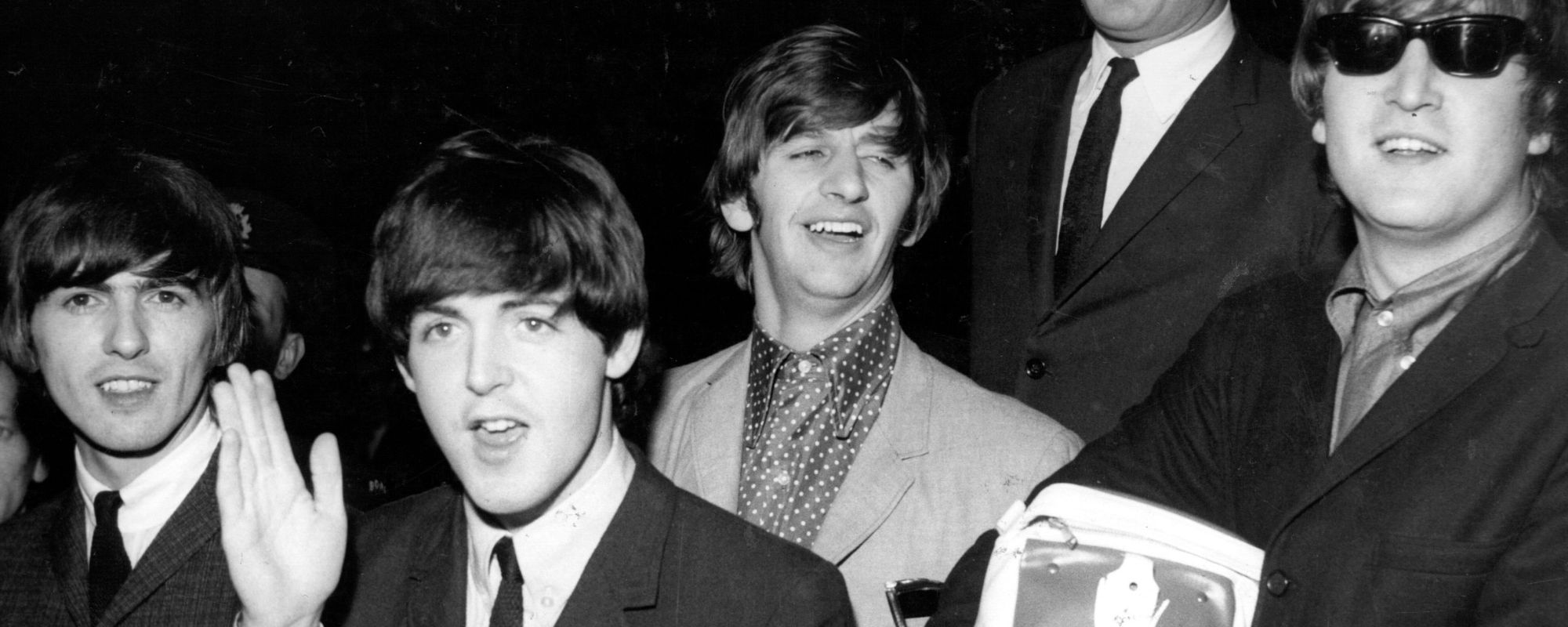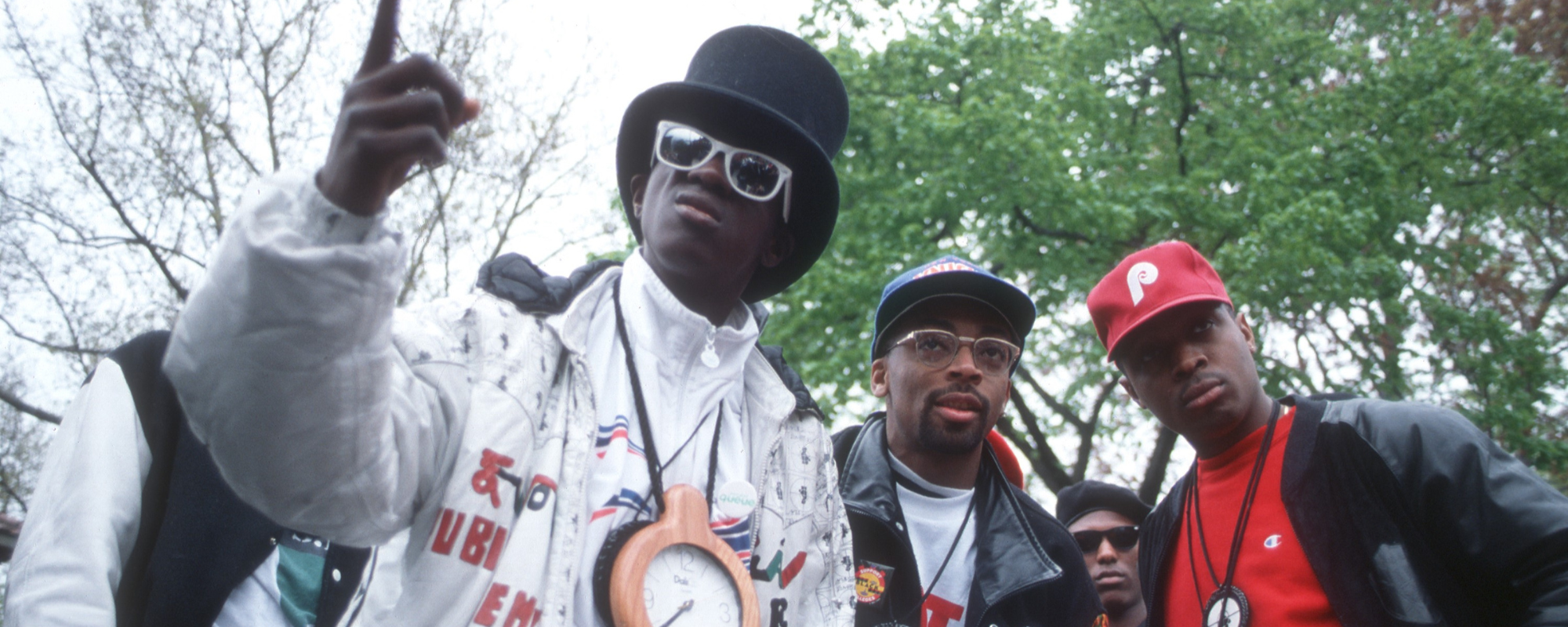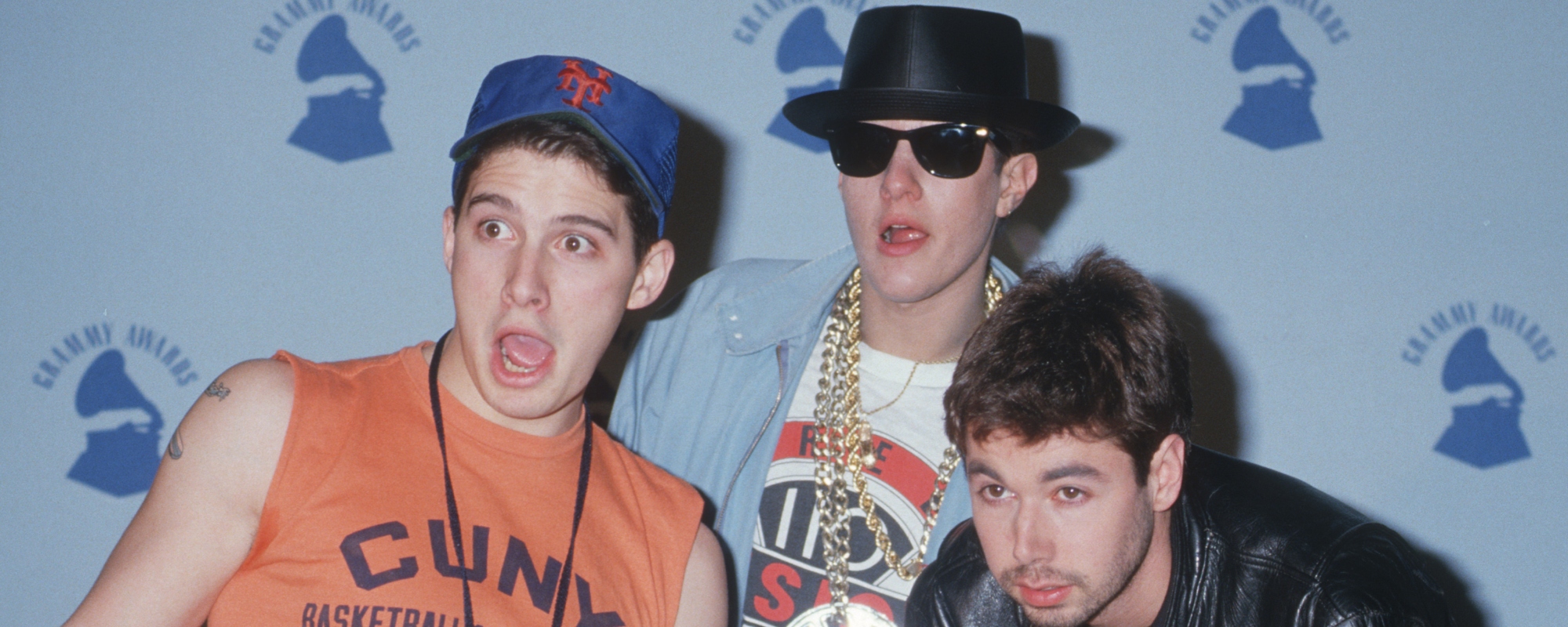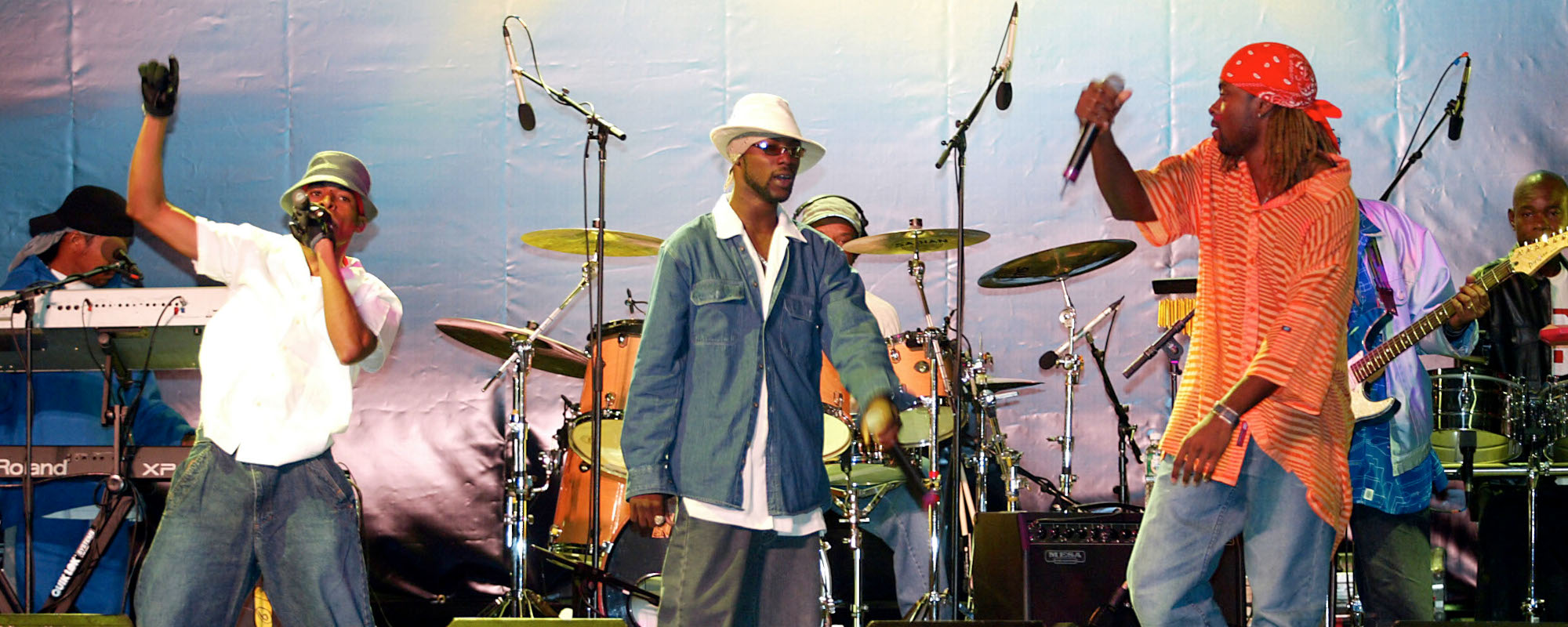If you saw the 2024 biopic Kneecap then you probably already know who these guys are. For the uninitiated, this hip-hop trio from West Belfast, made up of members Mo Chara (stage name of Liam Óg Ó hAnnaidh), Móglaí Bap (stage name of Naoise Ó Caireallain), and DJ Próvaí (stage name of J.J. Ó Dochartaigh), is blurring the lines between music, language, and politics. They rap in both English and Irish and their music concerns life in Northern Ireland post-Troubles: violence, politics, and anti-British sentiment alongside Belfast nightlife and youth culture, to risk oversimplifying it.
Videos by American Songwriter
Often satirical, mostly tongue-in-cheek, and always raunchy, Kneecap began in 2017 with the release of their debut single “C.E.A.R.T.A,” the Irish word for “rights.” The song came about after Móglaí Bap was almost arrested for spray painting the word on a bus stop. According to the group at the time, the song was “a satirical take on life for young people, particularly in West Belfast.” However, it was initially banned from Irish radio, until a petition managed to get it reinstated on the air.
That was merely the beginning of Kneecap’s rise. With the release of their debut album, 3CAG, in 2018, they made waves with their brash, purposefully offensive, yet honest and articulate rap style. They gained popularity in their local scene at the same time that they were dismissed and condemned by social and political figures in Belfast. However, their meteoric rise to fame couldn’t be stopped.
With Their Particular Brand of Rap, Northern Irish Trio Kneecap Seamlessly Blend Culture, Language, Politics, and Having the Craic
Kneecap were speaking to the youth of Northern Ireland through crass relatability. But they weren’t just over-the-top images, foul language, and drug references. Kneecap reached out to their community through unveiled political statements, blatant rebellion against polite society, and Irish republican sentiment. And they did it through clever wordplay and the desire to keep their language alive.
At one point, the number of Irish speakers was in a sharp decline. In the 19th century it became a minority language and was not routinely taught. During the 2022 Irish census, however, 39.8% of citizens in the Republic of Ireland reported being able to speak the language in some capacity, a 6% increase since 2016. In Northern Ireland in 2021, 12% of people reported some fluency in the language. While routine use is lower than reported fluency, many Irish activists tend to speak the language as social protest and cultural retention.
Kneecap could rap completely in English if they wanted, but the fact that they radically use their language is a protest of historical occupation in itself. The Irish language has had numerous attempts at revivals over the years, with revitalization programs and projects doing their best to keep the language alive. Kneecap does something similar by utilizing the tools they have: their capacity to speak the language and ability to make music.
Featured Image by Liam McBurney/PA Images via Getty Images












Leave a Reply
Only members can comment. Become a member. Already a member? Log in.